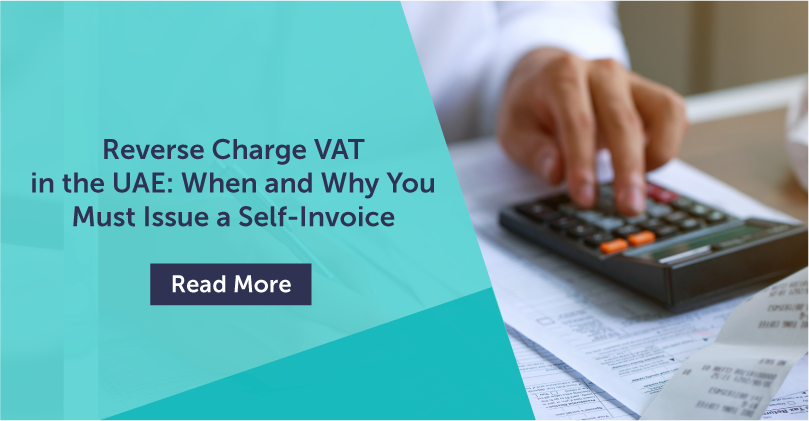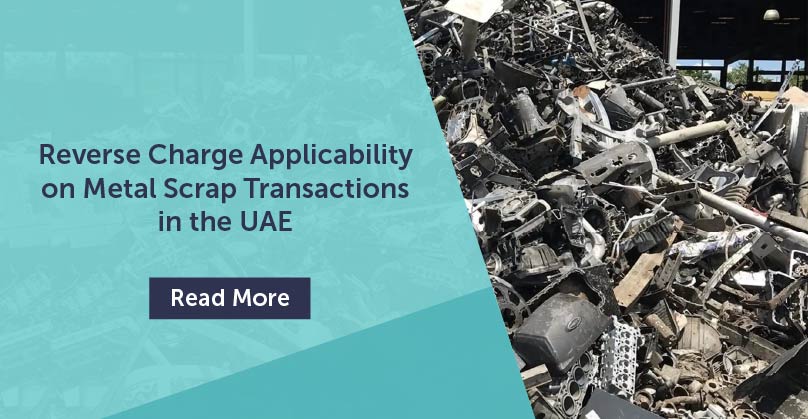
- Jun 04,2025
- UAE VAT
Do You Need to Issue a Tax Invoice for Import of Services under Reverse Charge Mechanism (RCM) in the UAE?
If your business in the UAE imports services from a supplier located outside the country, it's crucial to understand the VAT implications under the Reverse Charge Mechanism (RCM). The Federal Tax Authority (FTA) has provided specific guidance through Public Clarification VATP044, helping taxpayers comply with output tax accounting, tax invoice issuance, and input tax recovery obligations when importing services.
This blog dives deep into the legal obligations, practical exceptions, and accounting responsibilities for businesses in the UAE under RCM.
What is the Reverse Charge Mechanism (RCM)?
The Reverse Charge Mechanism is a VAT concept under which the obligation to report and pay VAT shifts from the non-resident supplier to the recipient of goods or services within the UAE. Under this provision, the recipient is treated as making a taxable supply to themselves unless the supply would be exempt if it were made within the UAE.
Under Article 48 of the Federal Decree Law, the recipient of the supply becomes liable to:
- Self-assess VAT on taxable services or goods received from outside the UAE.
- Report this VAT as output tax in their VAT return.
- Claim input VAT, subject to normal input tax recovery conditions.
This mechanism helps ensure VAT compliance in cross-border transactions where the supplier is not registered for VAT in the UAE.
Do You Need to Issue a Tax Invoice to Yourself?
According to the Federal Tax Authority's Public Clarification VATP044, when services are imported from an overseas supplier, the UAE recipient is required to:
- Account for VAT on the transaction under the Reverse Charge Mechanism (RCM) at the standard rate of 5%.
- Issue a tax invoice to themselves, by Article 59 of the Executive Regulations of Federal Decree-Law No. 8, within 14 days of the date of supply.
This self-issued tax invoice serves two primary purposes:
- It provides a record of the transaction for accounting and audit purposes.
- It forms the basis for input VAT recovery if the recipient is eligible.
Exceptions to Self-Invoicing: When It’s Not Mandatory
Considering the administrative burden of issuing tax invoices to oneself in the case of concerned services, the FTA accepts that the recipient is not required to issue a tax invoice under certain conditions:
- When the foreign supplier issues a proper commercial invoice which contains all the required details, such as:
- Supplier and recipient names and addresses
- Date of supply
- Description and value of the services
- Currency and exchange rate (if applicable)
- The UAE business accurately accounts for the VAT in their records as required by law.
What if the Foreign Supplier Doesn’t Issue an Invoice?
If no invoice is received, or if the invoice lacks essential information, the UAE recipient is required to issue a tax invoice to themselves. If this is not feasible, the taxpayer must either obtain an administrative exemption from the FTA or rectify the documentation to ensure compliance.
Accounting and VAT Reporting Responsibilities
Even though VAT is not physically paid to the foreign supplier under the Reverse Charge Mechanism (RCM), it must still be recognized in the accounting records.
Here’s how the process works:
- Record output VAT on the imported service in the VAT return under Box 3.
- Recover input VAT, if eligible, in the same return under Box 10.
It is important to verify that the service is not linked to exempt supplies, as this would impact the ability to recover input VAT.
Example:
If your business receives consultancy services from a UK-based firm:
- You must account for 5% VAT on the invoice value under RCM.
- You must record this VAT even if the UK firm did not charge VAT.
- If the service supports taxable activities (not exempt), you can recover the input VAT.
Stay Compliant with UAE VAT Laws
Proper VAT accounting is not just a matter of good bookkeeping, but it’s a legal obligation. Non-compliance can result in penalties and disallowance of VAT recovery. By understanding the RCM requirements and following the guidance in VATP044, your business can avoid pitfalls and stay on the right side of the law.
If you are unsure about your specific case, it's wise to consult a registered Tax Agent or reach out to the FTA for clarification.
Ajil Varghese
Associate Director - Taxation
M: +971 54 2119 621
Ajil.Varghese@claemirates.com




